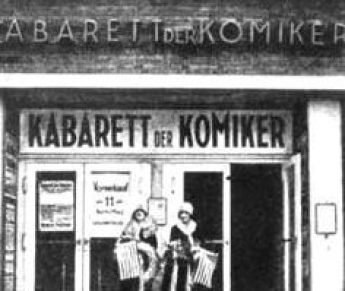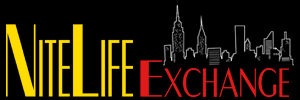
By MARILYN LESTER**** “It was the best of times, it was the worst of times, it was the age of wisdom, it was the age of foolishness, it was the epoch of belief, it was the epoch of incredulity, it was the season of Light, it was the season of Darkness, it was the spring of hope, it was the winter of despair…” Charles Dickens, A Tale of Two Cities
The prescient quote above speaks all too clearly to the current cultural-political environment we now endure. Since Election Day 2016 an atmosphere of gut-wrenching upheaval has prevailed. Outrage, disbelief, horror, anxiety, fear –  these are our daily companions. In a recent article on coping, writer Megan Cerullo reported that “So many Americans are suffering from political anxiety that doctors have coined a term for their distress — “President Trump Stress Disorder.” Facebook feeds continue to be an almost constant flow of commentary reflecting the day’s latest political news. “Can it get any worse?” folks ask, and wonder “what horror comes next?” Malevolence is certainly not new to the human condition, but what is new is that for us, in America, the malignancy issues from the highest level in the land, from the President of the United States. What’s more, it’s of unrelenting, toxic and titanic proportions.
these are our daily companions. In a recent article on coping, writer Megan Cerullo reported that “So many Americans are suffering from political anxiety that doctors have coined a term for their distress — “President Trump Stress Disorder.” Facebook feeds continue to be an almost constant flow of commentary reflecting the day’s latest political news. “Can it get any worse?” folks ask, and wonder “what horror comes next?” Malevolence is certainly not new to the human condition, but what is new is that for us, in America, the malignancy issues from the highest level in the land, from the President of the United States. What’s more, it’s of unrelenting, toxic and titanic proportions.
Those of us in the cabaret community are not immune to this world as we now know it. The question is: What can we and should we do about it? Throughout history, creatives from all disciplines have always been on the barricades. There is, of course, the courage of commentary, as in the recent wholesale resignation of the President’s Committee on the Arts and Humanities (originated under Ronald Reagan). Not only did all remaining 17 members of the committee step down, but the letters of each paragraph of the resignation spelled out “resist.” Creative protest also has evolved into a legitimate art form across all kinds of disciplines: song, theatre, graphic arts, publishing, and beyond. So, how  does the cabaret community fit into this picture? Do we, as cabaret artists and advocates, have a responsibility to speak up? To step up? To resist? To keep the pressure on? For surely, until the source of the problem is eliminated, it will persist. And it is a well-known strategy of oppressors to eliminate or suppress the arts (and education) to further their agendas.
does the cabaret community fit into this picture? Do we, as cabaret artists and advocates, have a responsibility to speak up? To step up? To resist? To keep the pressure on? For surely, until the source of the problem is eliminated, it will persist. And it is a well-known strategy of oppressors to eliminate or suppress the arts (and education) to further their agendas.
To answer the questions that speak to these moral imperatives, perhaps it’s useful to look at the conditions that gave rise to Nazism in 1930s Germany (and ultimately to the Second World War). Post-World War I Germany gave birth to the Weimar Republic, a time of a cultural blossoming for innovators, intellectuals and artists. The repressiveness of centuries of Imperial rule was over. Freedom reigned in the new republic, and perhaps was no more apparent than in Weimar cabaret, a popular entertainment reflecting a vibrant urban lifestyle, relaxed social attitudes, and the appetite for new forms of music and dance. Cabaret was not a German invention, though. The first cabarets appeared in France in the 1880s. When this art form was adopted in Germany in 1901 it was low-key and regulated under the rule of Kaiser Wilhelm II. Cabarets in general became popular after World War I, flourishing in Germany especially, where the medium quickly became a popular outlet for both entertainment and political views and commentary.  Stand-up comedians spared no one in their parody and lampooning of leaders, parties and policies (among their targets: Adolf Hitler). Songwriters such as Mischa Spoliansky wrote satiric tunes specific for the cabaret. For audience members, the new environment opened the door for gays, lesbians and transgender patrons to freely and openly attend and discuss culture and events of the day.
Stand-up comedians spared no one in their parody and lampooning of leaders, parties and policies (among their targets: Adolf Hitler). Songwriters such as Mischa Spoliansky wrote satiric tunes specific for the cabaret. For audience members, the new environment opened the door for gays, lesbians and transgender patrons to freely and openly attend and discuss culture and events of the day.
With Nazism and Hitler’s rise to power complete in 1933, the cultural life of Germany changed. It’s widely known that the Nazi genocide eliminated approximately six million Jews. But the Holocaust also eliminated millions of other “undesirables” and “degenerates” – homosexuals, Gypsies, Afro-Germans, people with disabilities, Jehovah’s Witnesses and political dissidents that included creatives. Many cabaret artists fled the country immediately, seeing the handwriting on the wall. Others were forced to participate in “positive cabaret,” wherein Nazi exploits were lauded and enemies mocked. In 1937 Joseph Goebbels outlawed all forms of political expression in German entertainment. For a period of time, cabaret was closed altogether. When it was permitted to reopen, it was dominated by women. Eventually warfare eliminated most of the venues. Gone were the Jews, liberals, and other “undesirables” of the Weimar cabarets. Some committed suicide rather than be deported to concentration camps, where, ironically, the survivors continued to perform and hold cabarets as long as they could.
Of course, times are different now, especially in the way technology has created a connected global community. But much is also the same. There are those who will always strive to oppress and to dominate the many for the benefit of the few. But heretofore, these agendas have never been the American way. The United States was founded on powerful, radical moral and ethical values, including the proposition that our government is made legitimate by “the consent of the governed.” This is the principle of “we the people” – the core value that makes us Americans. If we the people fail to defend this value, our nation topples; our democracy and all we hold to be true dies.
 Facebookers have no doubt seen the admonition, “Stay woke.” Staying woke is our job now, like it or not. As with any work, escape provides needed rest and relief to carry on. The cabaret stage can well provide for that. But escape and proactivity are not mutually exclusive. The example of Weimar cabaret shows that entertainment and activism can live compatibly and effectively side by side. In these times the cabaret community is presented with a unique opportunity to participate in shaping the future of this country. Those who are privileged to have a stage also have a forum to create awareness and reach deeply into the hearts and minds of our compatriots. The question for the cabaret community is: Do we have strongly felt principles that compel action, and is acting on that imperative the right thing? It’s up to you to decide.
Facebookers have no doubt seen the admonition, “Stay woke.” Staying woke is our job now, like it or not. As with any work, escape provides needed rest and relief to carry on. The cabaret stage can well provide for that. But escape and proactivity are not mutually exclusive. The example of Weimar cabaret shows that entertainment and activism can live compatibly and effectively side by side. In these times the cabaret community is presented with a unique opportunity to participate in shaping the future of this country. Those who are privileged to have a stage also have a forum to create awareness and reach deeply into the hearts and minds of our compatriots. The question for the cabaret community is: Do we have strongly felt principles that compel action, and is acting on that imperative the right thing? It’s up to you to decide.
“Art is a nation’s most precious heritage. For it is in our works of art that we reveal to ourselves and to others the inner vision which guides us as a nation. And where there is no vision, the people perish.”
—- Lyndon Johnson, on signing into existence the National Endowment on the Arts and Humanities
 About This New Column:
About This New Column:director, author, editor and publicist. She’s also the principal of MRL Arts Promotion. www.mjlester.com











Leave a Reply